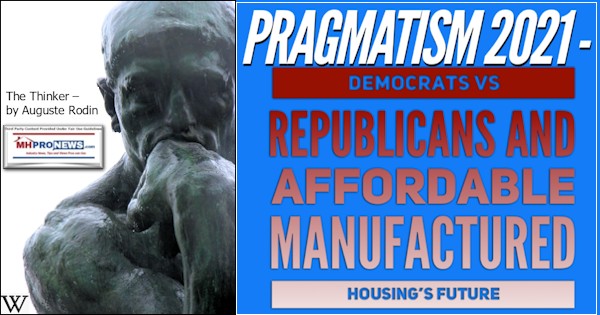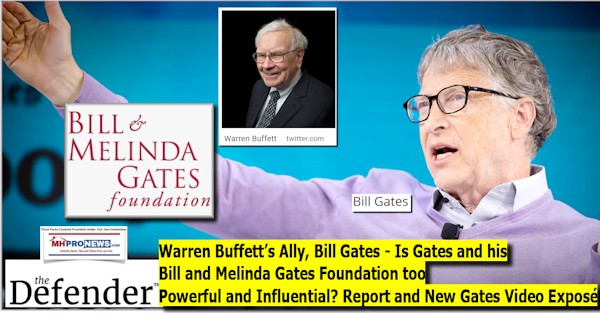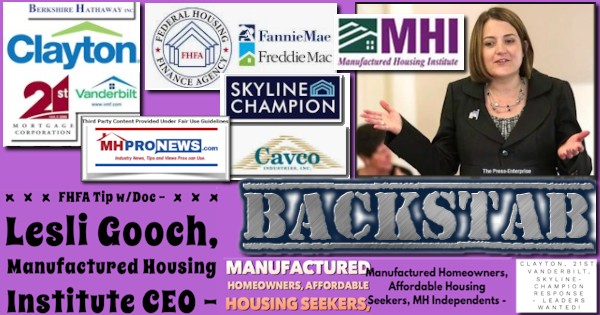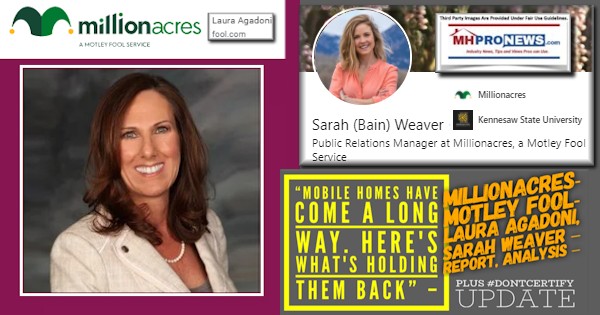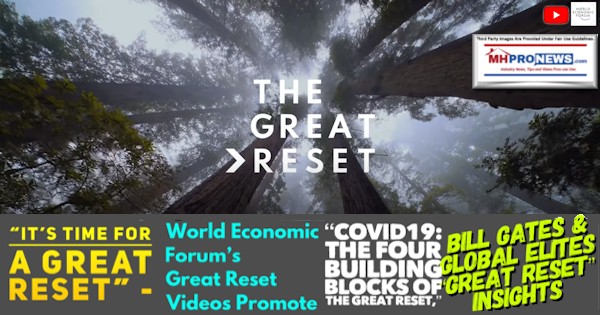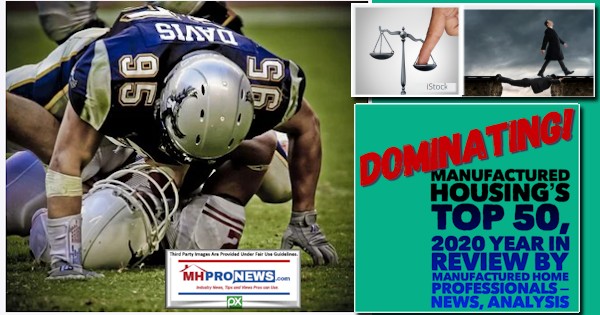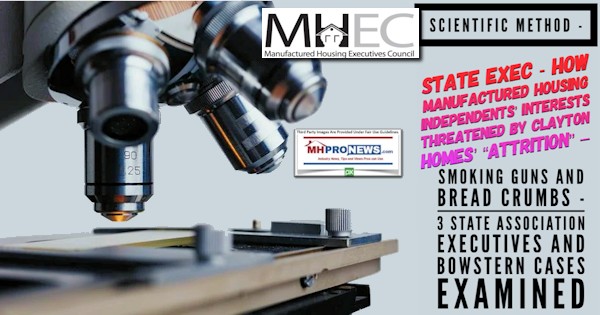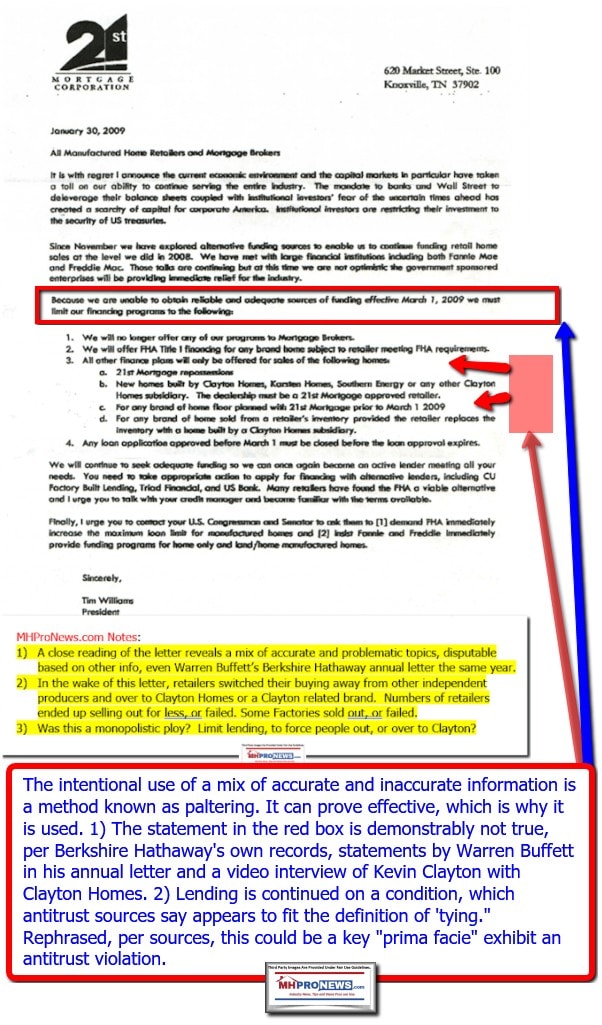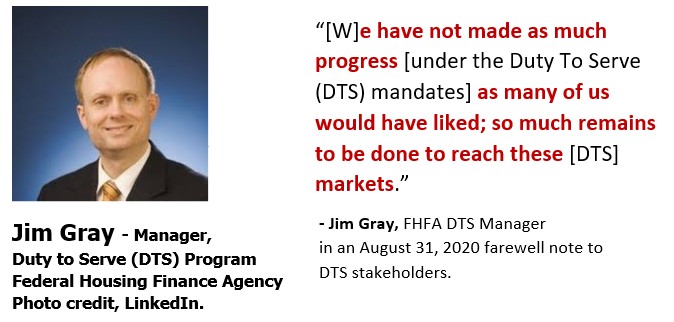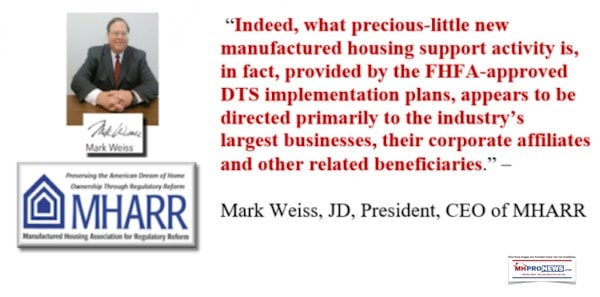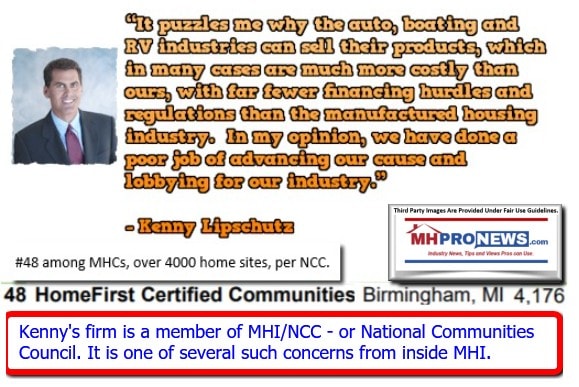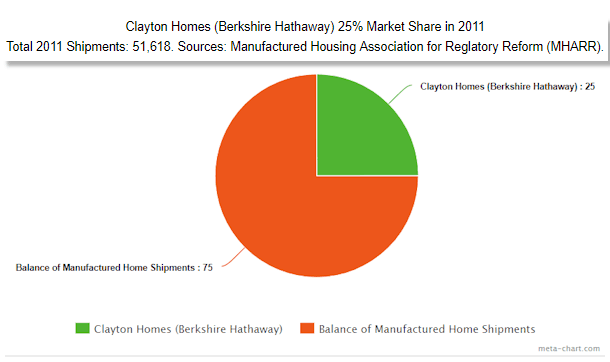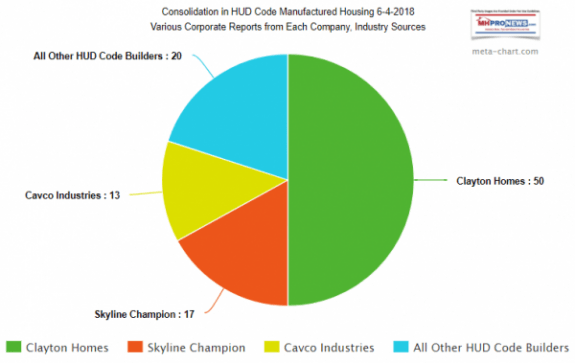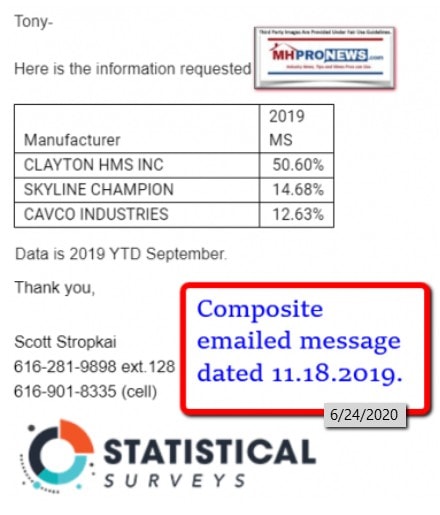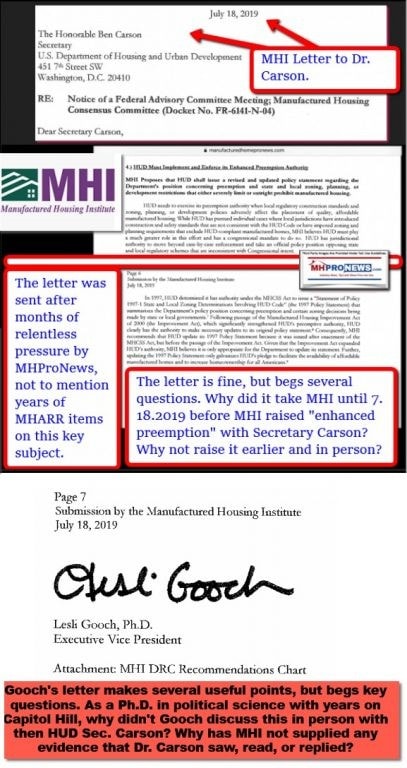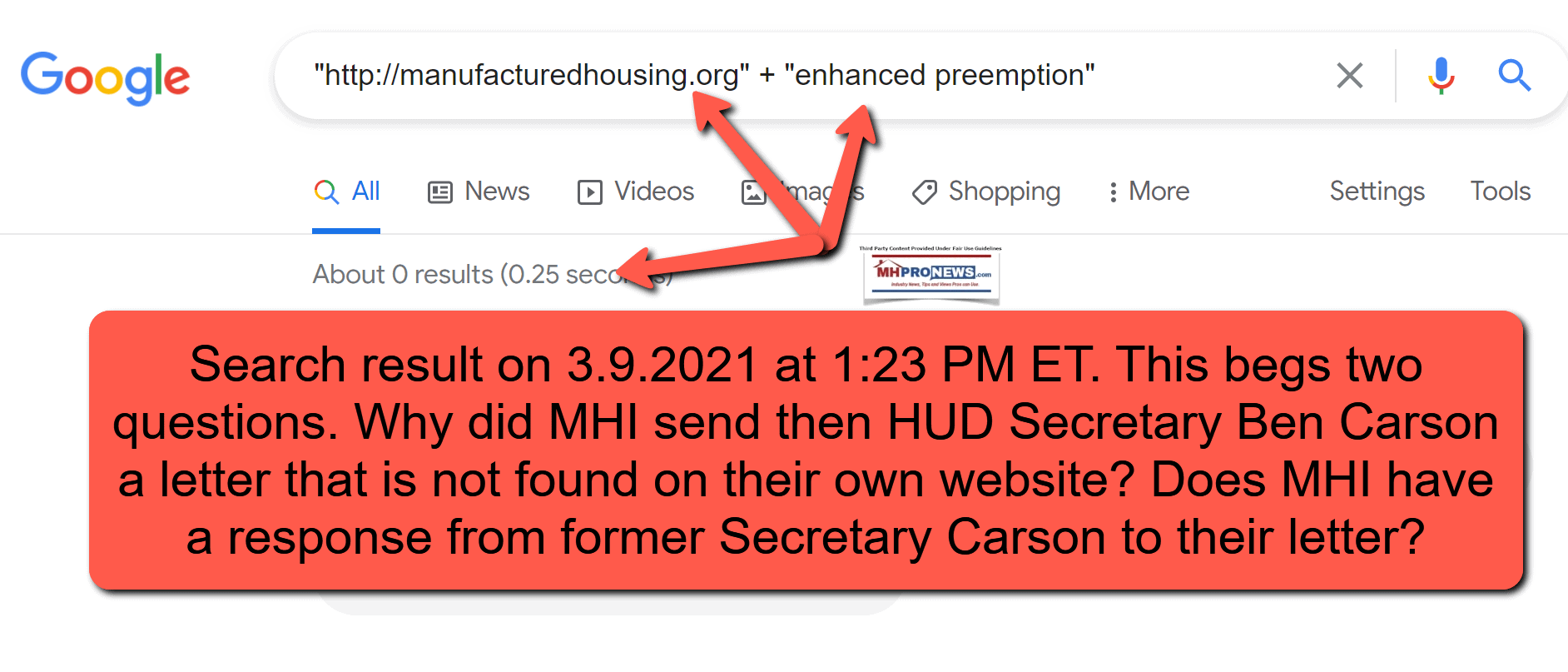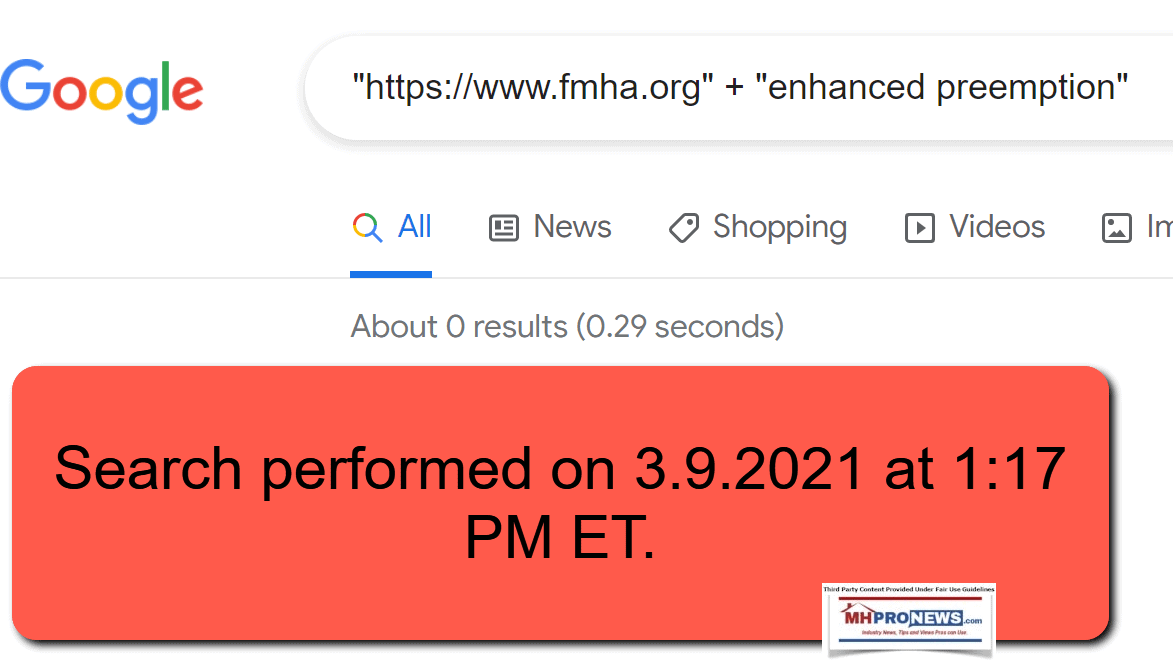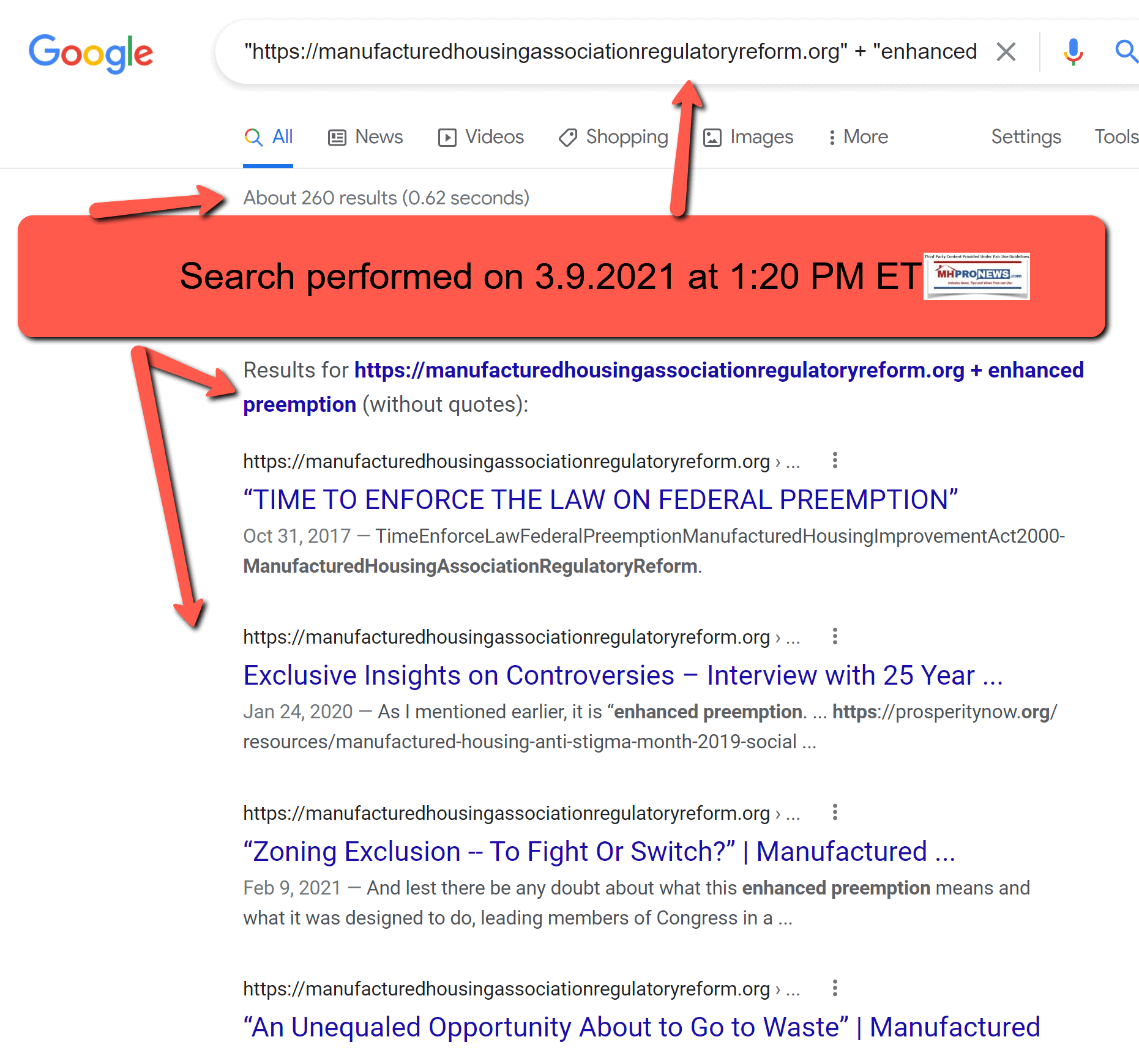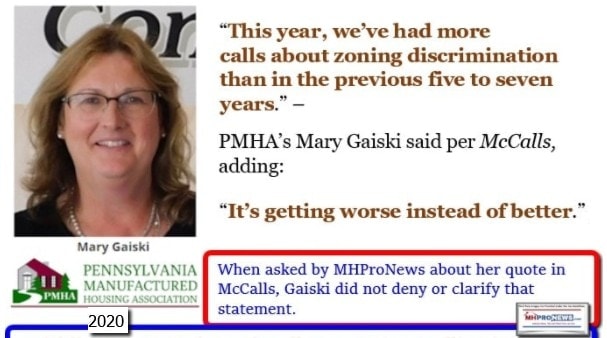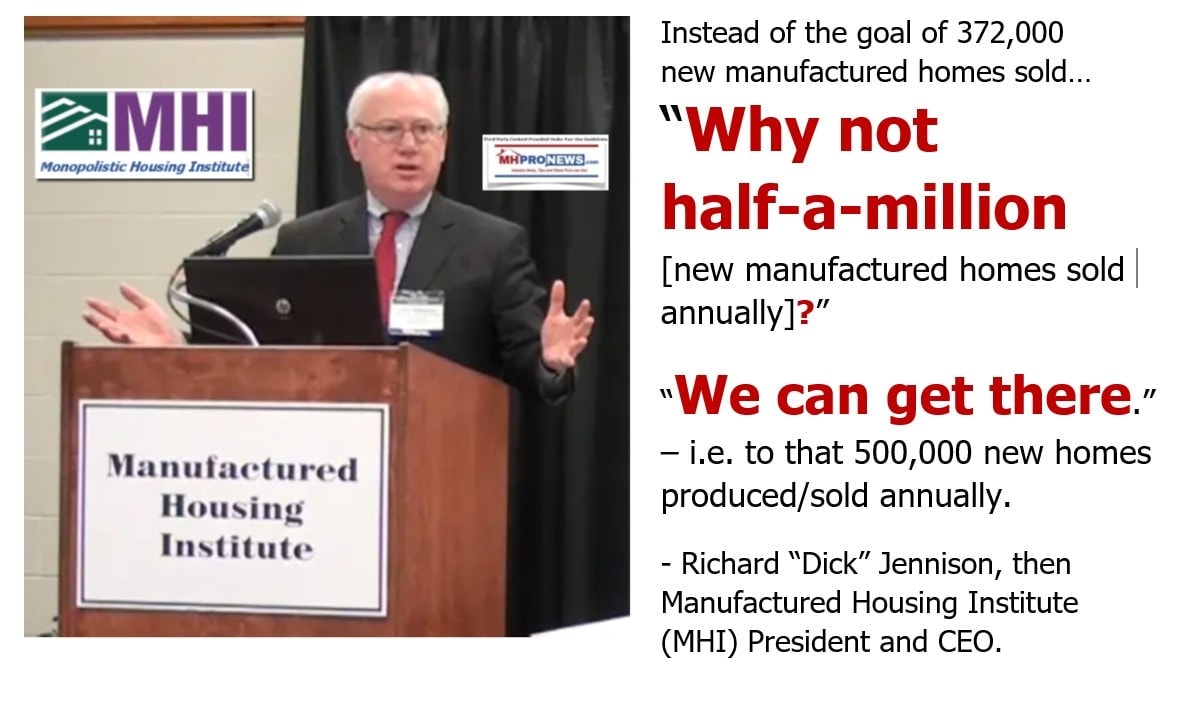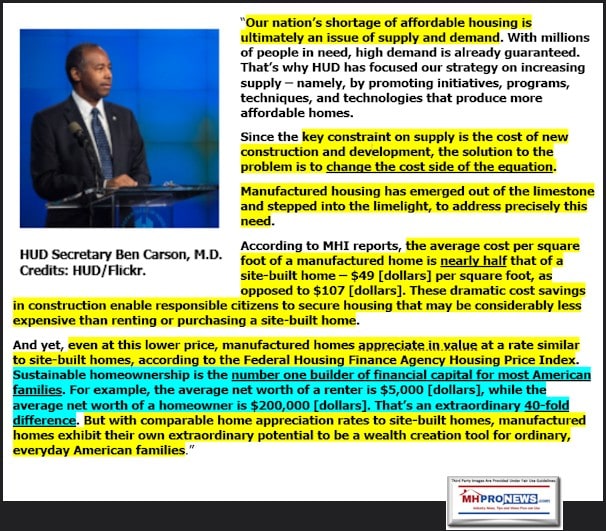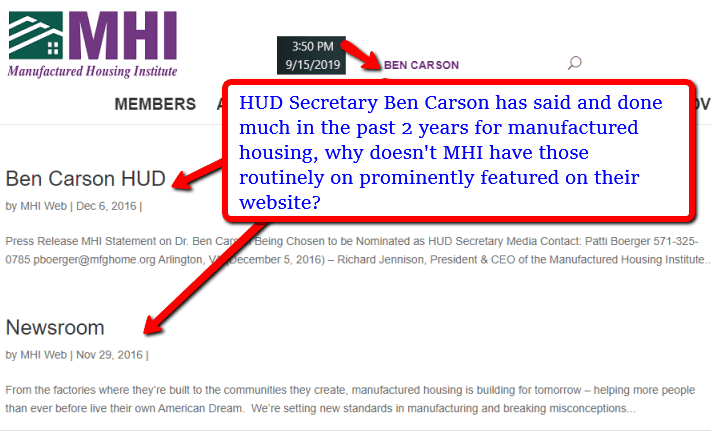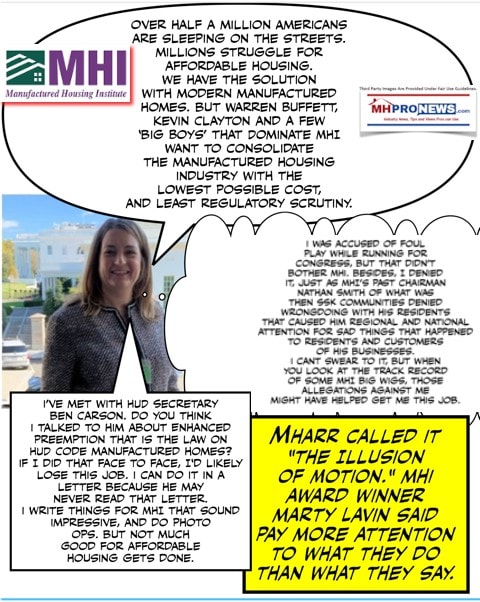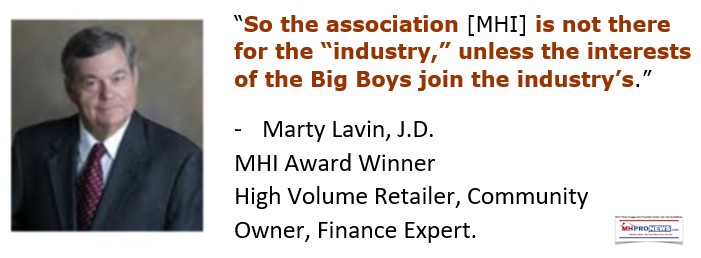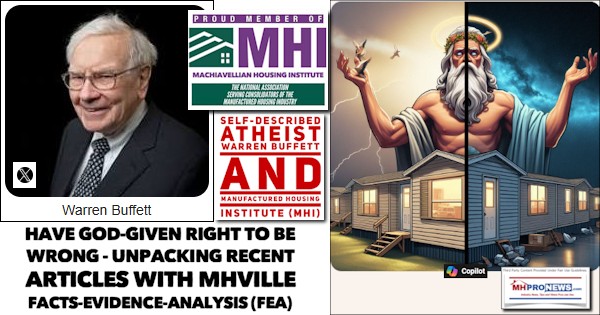“In a typical application of the scientific method, a researcher develops a hypothesis, tests it through various means, and then modifies the hypothesis on the basis of the outcome of the tests and experiments. … In this way, hypotheses serve as tools by which scientists gather data.” So says Britannica. Wikipedia states similarly. The bold emphasis was added.
Claims of ‘follow the science’ are all the rage in America and beyond in the era of COVID-19. The definition of the scientific method above makes it clear that science is trial, error, testing, and refinement in an objective fashion in order to arrive at some hopefully useful “truth.” It is worth noting that legal investigators, researchers, and reporters also use a similar method.
The known data in manufactured housing should be sobering enough for manufactured housing independents. That data, which – to some extent – is obscured, is nevertheless reasonably clear. There is overall a dwindling number of manufactured housing independents in HUD Code manufactured home production, in retail, and among manufactured home communities. Regardless if the baseline for comparison is known information from 2000 or 1998, the drop off is significant to dramatic.
For instance.
On the retail level, the concern that thousands of manufactured home independents have been lost were raised by research from IBIS World and reports in The Atlantic. Those outsiders looking into manufactured housing industry made the survival of manufactured housing independents questionable.
Both IBIS World and Atlantic reports predicted the pattern of a steady loss of manufactured housing independents would continue and that it would be vertically integrated firms like Clayton Homes that would benefit. To date, their argument seems to hold up to the known data. More on that research and reporting are found at this link here.
In a different case, a longtime manufactured housing state association executive – who served in MHEC, the Manufactured Housing Executives Council – made a study of a specific state’s independent retailers. He said the following as his way of explaining why Clayton Homes has an outsized role at the state association level. His thoughts were summarized with one word, “attrition.” Note that he put the loss of independents at 60 percent in just 7 years.

That 60-percent drop in that state was after the far more numerous – and thus, dramatic – drop of retailers and producers that occurred following the nuking of lending for non-Clayton independents ordered by Tim Williams at 21st Mortgage, documented by the letter linked here.
But there is more.
There are dozens or manufactured housing state level associations. While a few broke away from the Manufactured Housing Institute (MHI), alleging their failure to deliver on promised outcomes, the vast majority have stayed as MHI “affiliates.” Once a reasonably independent sent of organizations, the evidence and insider statements alike suggest that state level associations become increasingly under the sway of Berkshire Hathaway owned brands. New readers should look at How Gold Rules, which was based upon credible allegations that neither MHI, 21st Mortgage, nor 21st CEO Tim Williams has ever publicly challenged that report to and by MHProNews.
If that was not enough, published statements by MHI’s own former vice president for Government Relations and their former president Chris Stinebert and Richard “Dick” Jennision, have each underscored – by accident and/or design – in their own words de facto confirmed the hypothesis that industry insiders have colluded to undermine the interests of independents as well as consumers. Because what they said, compared to what occurred is enlightening to objective, ‘scientific’ thinkers.
Summing up to this point.
- Some state association leaders jointly publicly alleged MHI’s years of failure at advancing their own stated agenda.
- A state association executive said that “attrition” was causing the ever-increasing influence of Clayton Homes at the state level.
- That attrition was detailed by IBIS World and Atlantic research and reporting.
- Several state association executives told MHProNews directly how Tim Williams at 21st effectively threatened them collectively in a conference call with the loss of their financial support.
- Former senior level MHI staff have made statement that support the hypothesis of collusion to undermine manufactured home independents as well as the interests of consumers.
- Note that none of the above are related to any similar allegations connected with to the Manufactured Housing Association for Regulatory Reform (MHARR). That will be glanced at shortly. Rather, these are state executives, MHEC members, and industry insider as well as third parties who have provided their own respective insights. While some were off the record, several provided their insights on the record or publicly. All have been used by MHProNews and MHLivingNews to test the hypothesis. Thus far, the hypothesis has grown stronger over time, not weaker. As evidence mounts, it becomes more difficult to deny in an intelligent, objective fashion.
Then, there are the statements of Danny Ghorbani, an ex-MHI Vice President and the founding president and CEO of MHARR.
Then there are the public statements of Bob Crawford made in front of an audience of his peers and recorded on video. Crawford was at the time was the president of famous Dick Moore Housing. Dick Moore’s firm was for decades one of the largest sellers of trailer houses, turned mobile homes, and later in the manufactured home era. Moore also owned manufactured home land-lease communities. MHProNews via an Inside MH Video interview captured some of the keen insights from Moore about his firm and the evolution from trailer houses to mobile homes and finally into manufactured homes.
Then, there are the allegations made by attorney Marty Lavin, who for years operated a financial services firm engaged in manufactured home lending. Lavin owned his own manufactured home land-lease community. The statement made was that his former property was sold to the residents as a Resident Owned Community (ROC). Lavin has served Fannie Mae, the larger of the two Government Sponsored Enterprises (GSEs or “Enterprises”). Lavin has lashed MHI and what he calls “the big boys” who he says dominate that trade group in favor of their own interests. Put differently, where the interests of consolidators and independents differ, Lavin says that “the big boys” way wins.

Note that while MHProNews has reported on these trends and claims, these allegations have all been made by others. Several of these sources are from MHI or MHI connected affiliates or firms. That too adds to credibility of the hypothesis.
Indeed, as MHProNews has expressed, for a time, while our leadership knew there were things going wrong in the manufactured housing industry, the details of how and why that was occurring were not entirely clear. But the data and history made it that clear that the trends were troubling and that something had to be done. But we had to be convinced by evidence that Clayton, 21st and by extension that MHI were part of the problem rather than part of the solution.
Note that it was during the general timeframe that Clayton Homes, 21st, and MHI were clients of this publication that MHProNews began to publish specific allegations that apparently resulted in their loss of advertising support. That is significant, because it demonstrates that this publication followed the evidence and did not allow sponsor dollars to deter our publishing.
Rephrased, that to objective thinkers should be added credibility. It also debunks any ridiculous claim that MHProNews would do these reports to earn money, when the opposite is demonstrably true.
Scientifically speaking, the thesis or hypothesis that manufactured housing was being hollowed out from within had to be repeatedly demonstrated. Those purportedly involved – and their inside and outside attorneys – in fairness and objectively had to be invited repeatedly to debunk, refute, or otherwise demonstrate how the allegations were in any way inaccurate.
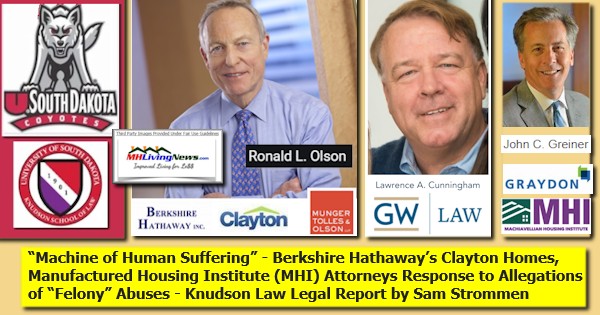
It should be noted that over time, several attorneys have reviewed the information MHProNews and our MHLivingNews sister-site have published.
At least one of those attorneys, perhaps more, that contacted us asking to review the research was/is arguably in the camp of MHI and the consolidators. He did not disagree with our “Case against Clayton Homes” or related thesis. Our research and reports have only advanced since that time.
Note that said MHI connected attorney at least postured that he would help find an attorney/law firm who would delve into these issues on a contingency fee basis. Even if that lawyer’s claim was a head-fake or stall tactic, it nevertheless becomes just one of numerous pieces of insight and evidence that the thesis holds up to scrutiny.
Big Guns from Attorney General Offices
Several state antitrust attorneys general offices have been engaged and conversions were requested after they reviewed published reports on MHProNews and/or MHLivingNews. Those state AGs each provided feedback that suggested that not only was our research and hypothesis correct, but that other possible violations of the law evidenced by our research and reports.
So, as serious as “felony” antitrust allegations can be, that may be modest compared to concerns that RICO and other laws may have been violated too. “The federal Racketeering Influenced and Corrupt Organizations (RICO) law was passed in 1970 as the “ultimate hit man,” says the Justia legal website.
Justia says that while it was launched to use as a tool against the mob, “Today, the government rarely uses RICO against the Mafia. Instead, because the law is so broad, both governmental and civil parties use it against all sorts of enterprises, both legal and illegal.” Meaning, even a legal business – as opposed to illegal enterprises like selling drugs, prostitution, or other criminal activities – are the target of RICO cases. RICO has both civil and criminal components. Under civil RICO, triple damages plus costs can be obtained.
“Note that an enterprise is required,” for criminal RICO, says Justia. Oxford Dictionaries defines Racketeering as “dishonest and fraudulent business dealings.”
Dishonest. Fraudulent. Business dealings.
“Significantly, mail and wire fraud are included on the list” of RICO offenses. Meaning, misuse of the U.S. Mail, or misuse of the wires – which can include phones or the internet – are possible elements of a criminal offense.
Good News and Bad News?
The above and more of what follows is potentially bad news for those individuals who were involved in ‘the enterprise’ or racketeering efforts designed to defraud people of their property and/or rights. While the comment seemed to be made in jest, in the light of the above, when Warren Buffett refers to himself and Berkshire Hathaway Vice Chairman Charlie Munger as “partners in crime,” is there more to that than meets the uninformed eye or ear? Because RICO activities can include legal businesses that are behaving in an illicit fashion.
Given that several mainstream media outlets have made allegations against Clayton Homes and their related leading, as have several public officials – often Democrats – it becomes difficult if not impossible for a serious and sincere trade publisher or manufactured home industry trade association executive to be able to claim that they are unaware of the credibility of those claims.
In fact, because MHEC members messaged about the John Oliver video and other items, the evidence is that they state association executives would be derelict in their duties if they did not know.
While the video is insightful, the report linked below connects the dots between several of those firms mentioned, Clayton Homes, and the Manufactured Housing Institute (MHI)
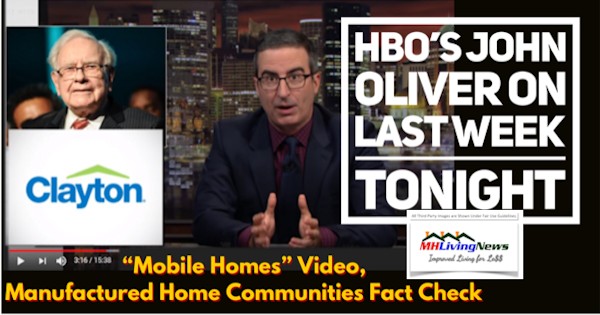
Well over 8 million views have occurred of that video, besides the millions more that viewed it live.
State association executive(s) have self-reported that they are engaged with our x2 weekly email updates and our websites.
Additionally, even rival bloggers or publishers have made statements directly and/or indirectly that they too are engaged with our industry-leading trade media. As one of those rivals said directly to MHProNews, our reports on the monopolization and/or consolidation of numerous aspects of our industry is what manufactured home industry professionals talk about “in bars,” during meals, and “over drinks.” It was a fine oblique but arguably accurate compliment.
Third parties engaged with our industry that have seen what others publish and then see what we do realize that they are routinely cheerleading for the consolidators by accident, design, and/or by their silence. Put differently, there are reason to think that some bloggers and ‘trade media’ are providing cover for RICO type activities. There are also allegations that some of that published material is used with potential or current investors. If so, then that opens the door to several legal concerns that may include RICO or antitrust but could also go beyond it.
Let’s add some additional outsider-looking in evidence and reporting, and then return to new developments and insights. Because each of the third-party reports that follow, properly understood, also support the hypothesis above.
Partial List of Mainstream Media With Similar or Related Allegations
- GuruFocus said “Warren Buffett Can’t Escape Unethical Strategic Moats,” their specific points are linked here.
- The Nation called it “The Dirty Secret Behind Warren Buffett’s Billions…” and specifies Clayton Homes among those using the strategic moat in ‘dirty’ ways.
- The Seattle Times in “Minorities exploited by Warren Buffett’s mobile home empire Clayton Homes” said that “Clayton’s grip on the lending market verges on monopolistic…”
- The Jacksonville Florida Times Union summarized the connection between the John Oliver viral hit video dubbed “Mobile Homes,” MHI, Clayton Homes, and their related lenders. That op-ed was first fact-checked by an editor, before it was published in multiple Florida newspapers.
- Forbes has an article that focuses on the racial bias and predatory businesses practices too. It is entitled “Warren Buffett’s Exploitative Mobile Home Investment.” Rephrased, there are sources across the left-right media divide that have highlighted problems with Clayton Homes, their business and lending practices for several years. Several of those have included a monopolistic angle.
- The Atlantic, mentioned along with IBIS World in our outline further above, noted that the independent retailers in manufactured housing were being rapidly eliminated/consolidated. They did not specify how that was being done, but stated the evidence based trends in a report linked here.
- In a column in American Banker, Doug Ryan with CFED (rebranded since then as Prosperity Now) had the headline: “Time to End the Monopoly Over Manufactured Housing.” It opened as follows.
“For too long we have ignored a segment of our housing system that offers an affordable path to homeownership: manufactured housing,” said Ryan.
He continued, “A manufactured home is the only option for many low-income families to own a piece of the American dream. But those families often have limited access to competitive loan-pricing that is available to more conventional home buyers, thanks in part to low participation by Fannie Mae and Freddie Mac in the manufactured housing market.”
As Marty Lavin said in his most recent on-the-record statement on the GSEs, the prior and the past iteration of their ‘support’ for manufactured housing has gone or is going nowhere.
The significance is arguably both blatant and nuanced. When other options are limited or do not exist, then Berkshire owned lending options – and thus Clayton Homes and their sister brands – benefit.
This pattern of twisting the use of Duty to Serve (DTS) mandated by the Housing and Economic Recovery Act (HERA) of 2008 has created what Lavin – an MHI award winner – has called a “witch’s brew” of problematic issues.
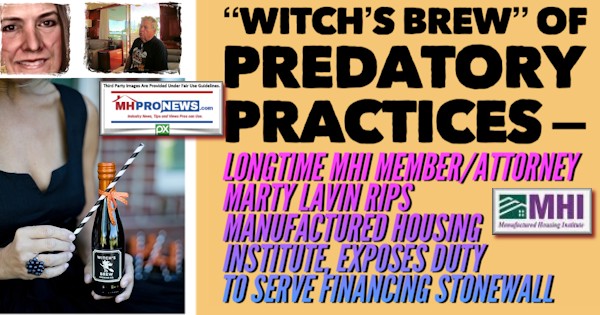
Let’s sum up but also begin to establish a timeline more before proceeding.
- There are numerous third-party reports that allege monopolistic, unethical, and/or “moat” building tactics lodged against Clayton Homes, Berkshire Hathaway (BRK), Warren Buffett, and their industry lending or other units.
- MHI’s own website documents the decline in production focused manufactured home companies. Note that their base data stops at 2012. Why then? Why has that not been updated?
- MHProNews, to help compensate for that data gap, has used another illustration from MHI to combine them and thereby create important trends information in the collage with commentary below.
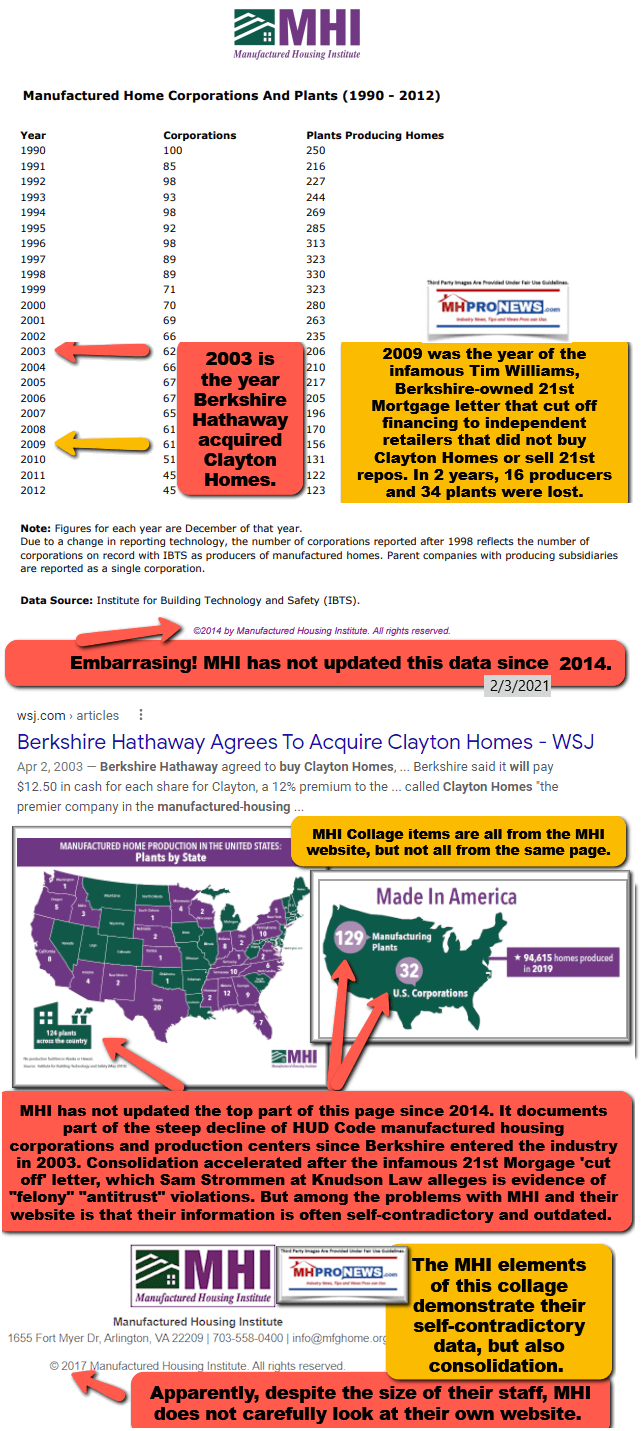
- Using MHI’s data, in 1998 there were: 89 corporations and 330 operating plants producing HUD Code manufactured homes.
- In 2000, the year that the Manufactured Housing Improvement Act (MHIA or 2000 Reform Law) was enacted, there were 70 corporations and 280 operating HUD Code plants.
- In May 2000, per MHI’s now defunct Modern Homes Development, Eric Belsky – then Executive Director of the Joint Center for Housing Studies (JCHS) at Harvard University, said that “there are multiple reasons to expect manufactured housing to do better than site built housing in the decade.” Meaning, by 2010, Belsky – who’s research made him quite aware of the manufactured housing credit and repo crunch post-1998, nevertheless still projected that HUD Code manufactured homes would overtake conventional housing. Why? Because the quality for manufactured homes was there, plus there was – and remains – a growing affordable housing crisis.
- By 2002, Warren Buffett led Berkshire Hathaway (BRK) makes his visible foray into manufactured housing. That was the year that Berkshire acquired Oakwood manufactured homes and their vertically associated lending and retail units.
- In 2003, in what Kevin Clayton admitted was an ugly legal battle, Buffett-led Berkshire acquired Clayton Homes and their associated lending. Other than a brief blip up in 2005, which Cavco Industries (CVCO) investor relations presentation associated with hurricanes and FEMA orders, the total production of HUD Code manufactured homes in 2020 is lower than it was in 2002 or 2003. Given Berkshire’s financial resources, that should beg the question, why? Why did Berkshire allow and/or cause the industry to constrict instead of causing it to grow back to or beyond its prior highs? After all, Eric Belsky predicted that would happen by 2010.
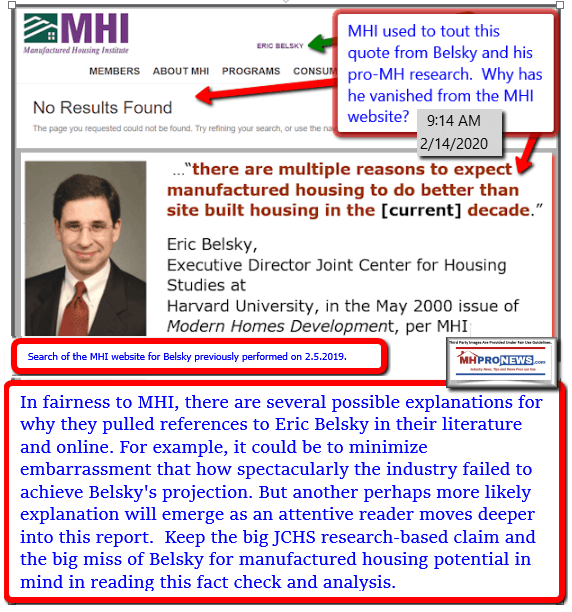
- In 2009, Tim Williams led 21st Mortgage Corp reportedly delivered via mail, fax, and internet (in possible RICO terms, the wires and the mail) the letter below. Following the impact of that letter on the HUD Code manufactured home market, the illustration above makes clear that roughly half of the independent producing corporations have vanished.
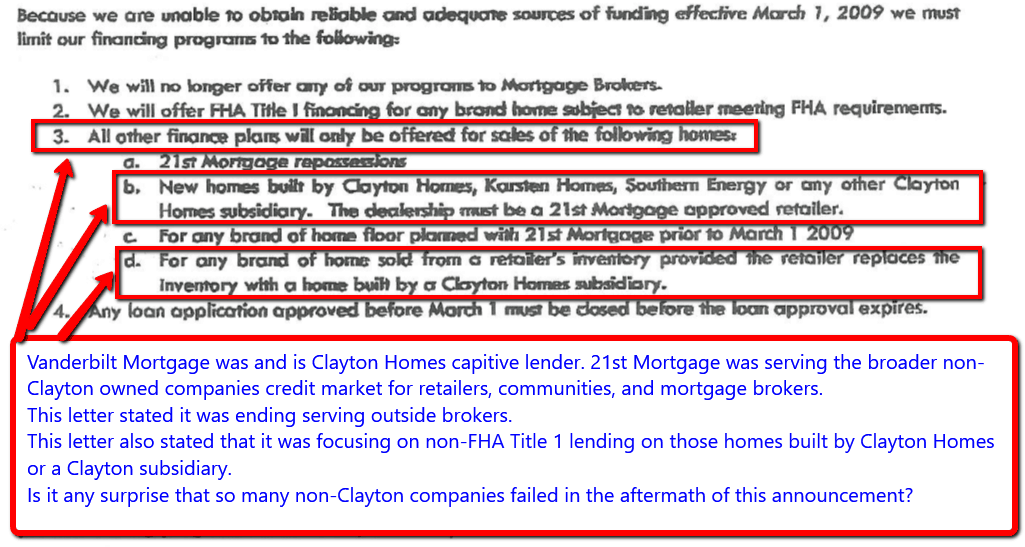
- Why has this trend occurred? Again, let’s turn to then Harvard’s Belsky. He made it clear that credit is the lifeblood of housing.
- Rephrasing, in the absence of ample and competitive credit, the numbers of manufactured housing independent producers dramatically Coincidence? Based on the evidence, hardly.
- Note too from Tim Williams/21st Mortgage Corp (a BRK brand and Clayton Homes sister company) urged manufactured housing independents to get Fannie Mae and Freddie Mac to step up to the plate. After all, in 2008 HERA 2008 made the “Duty to Serve” manufactured housing the law.
- However, over a dozen years later, for a variety of reasons that in many cases arguably trace back to Berkshire brands, MHI behavior, and their Iron Triangle, there has been no appreciable progress on getting that existing law properly implemented. Who says? Their prior program manager.
Who else says? MHARR’s President and CEO, attorney Mark Weiss. He has repeatedly pointed to conglomerates that by name or implication includes Berkshire brands named herein.
Who else says that there is a financing problem? MHI member, Kenny Lipschutz in an on the record interview.
Who else has made assertions that DTS is doable? How about former Fannie Mae VP and President and CEO of the National Housing Conference (NHC)?
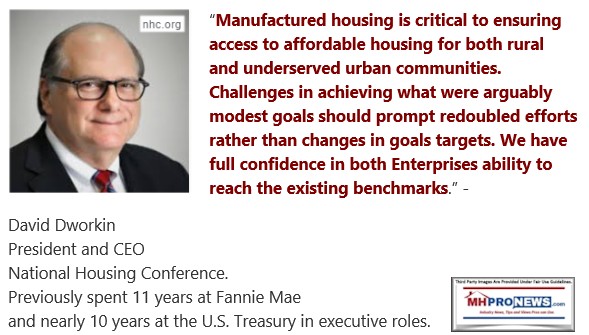
Indeed, while MHI postures efforts to obtain more lending, there is an ever-growing body of evidence that they are just feigning such efforts. How benefits from that pattern? The Berkshire brands and other consolidators.
Perhaps one of the clearer examples of just how accurate and true this contention is would be the fact that Williams/21st, a former MHI chairman, said in a meeting that he was glad that the DTS pilot project had failed.
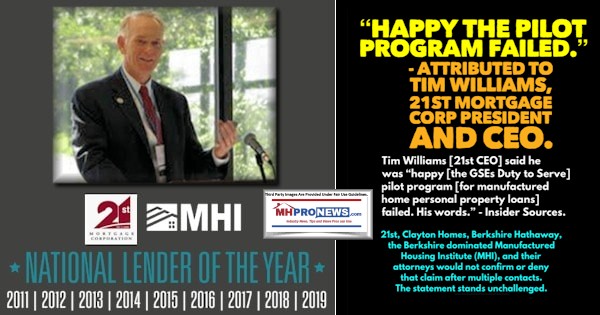
That was from an insider tip. Did Williams, MHI, or others deny it? No. Why not? Perhaps because it was made in the presence of numerous witnesses?
A close examination of the history of statements published by MHProNews by Williams reflects that he has been all over the map on DTS.
What has the upshot of this kind of pattern led to by 2018? The market share graphics below tells part of the tale.
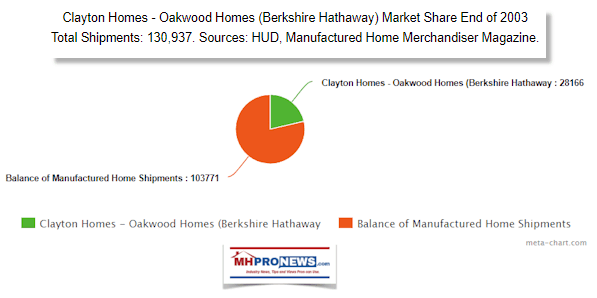
Clayton Market share grew steadily after 2003, but the process accelerated following the 2009 letter from Tim Williams that cut off lending to thousands of non-Clayton Homes independents. Per legal sources, that letter appears to be a prima facie case of tying, an antitrust violation. It arguably raises RICO and other concerns too.
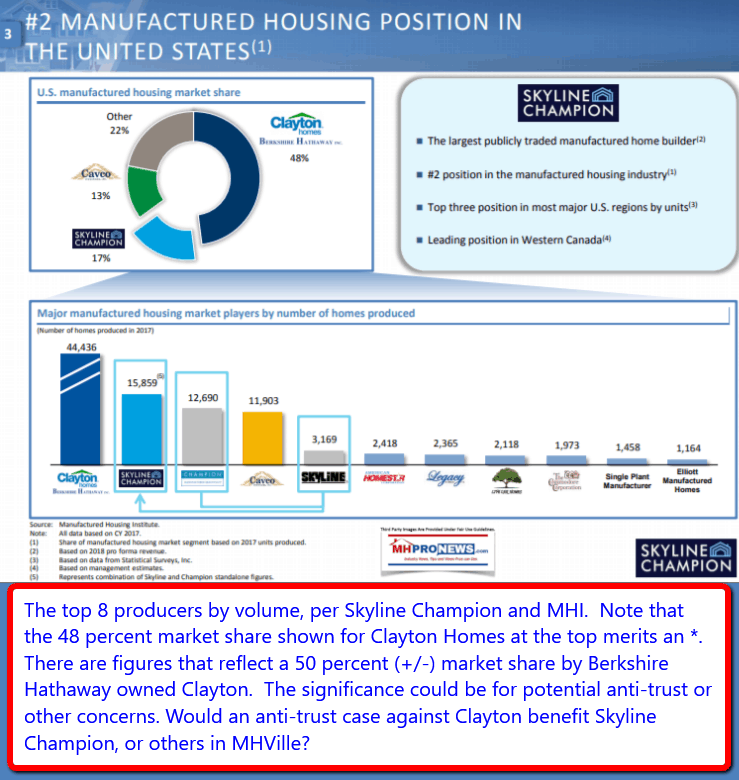
MHARR’s former president and CEO, Danny Ghorbani, urged FHFA to launch an internal investigation.
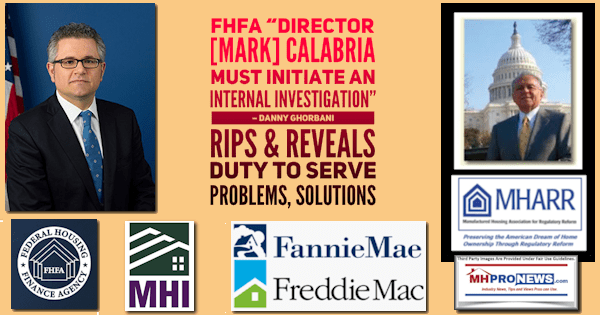
While the argument could be made that FHFA is part of the Iron Triangle, the public statement by Ghorbani and others like it by MHARR CEO Weiss should be sufficient to make clear that the i’s are being dotted and the t’s are being crossed as to how deep this purported conspiracy goes.
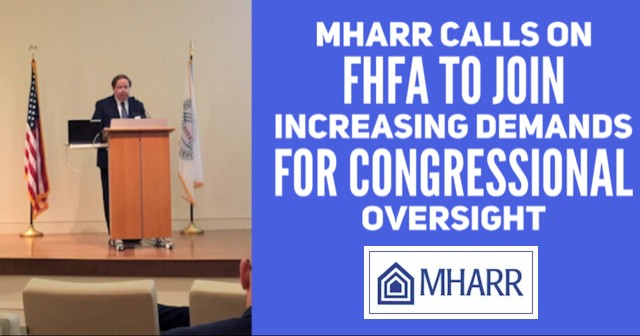
Beyond industry voices, others peering into manufactured home lending have urged the need for an investigation into manufactured housing industry finance.
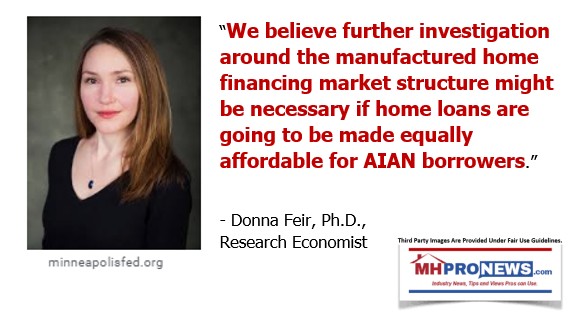
Summing up the above. The evidence-based argument can be framed that a few industry firms that dominate MHI, and may well dominate most state associations too, is steadily being monopolized in a fashion that could violates antitrust, RICO, or SEC or other laws.
Who has publicly made such claim? Besides those noted, legal researcher Samuel “Sam” Strommen from Knudson Law. Strommen’s well footnoted report is linked below.
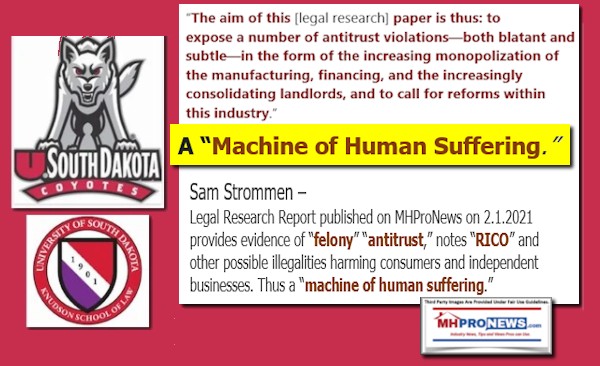
Now, MHI does have and uses an antitrust warning and a code of ethical conduct statement. But insiders tell MHProNews that there is no known case when the Code of Ethical Conduct has been used, even though apparent examples exist of possible violations.
Additionally, a close look at the MHI antitrust statement leads to several possible violations, but they stand publicly mute on that since Lesli Gooch’s response to Doug Ryan’s American Banker op-ed.
- MHI has access to years of good laws and useful research resources. However, those resources routinely can not be found, properly explained – or mentioned at all – on the MHI website.
- In fairness, some State Association Executives in MHEC have been period sources of insights for MHProNews. But several have not. More on some possible examples further below.
Thus, a pattern of activity and problematic behaviors exists that supports a hypothesis that MHI is being dominated by Clayton Homes and other Berkshire Hathaway brands. If so, this opens up possible IRS and perjury concerns too. Because nonprofits are making statements under oath.
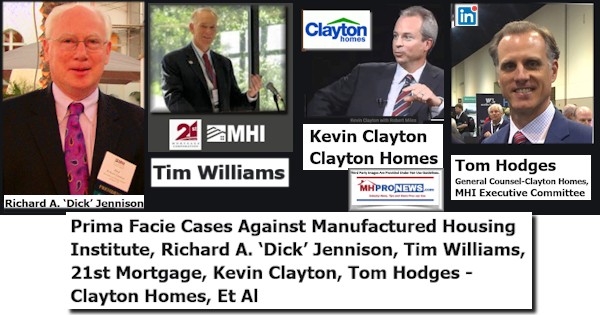
Those statements are being reviewed by the MHI board before they are signed, per their own filings.
These concerns may in turn raise questions about their IRS Form 990 service provider. Indeed, there are a range of lobbyists, attorneys, and others who could be involved to various degrees in the purported sabotage of manufactured housing industry independents.
That in turn must be seen as not only harming the investments of thousands of individuals and their companies. It must also be grasped that hundreds of thousands, if not millions, of manufactured homeowners as well as perspective buyers have been harmed.
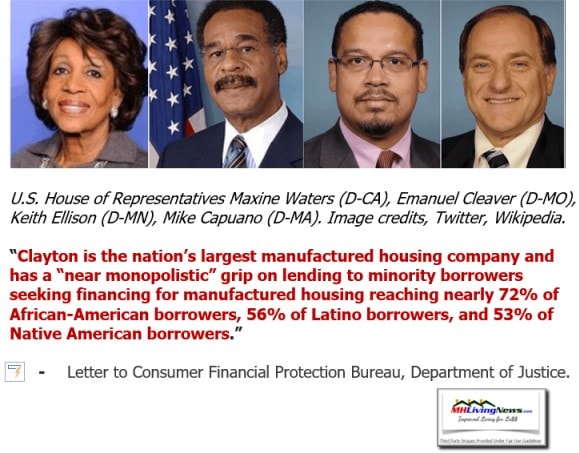
To their credit, MHARR has been pushing publicly and privately on these issues consistently for well over a decade. Indeed, MHARR and their retired former president and CEO, has in numerous instances prevented even more erosion of manufactured housing through their years of publicly, persistent, pushback. As MHProNews has reported – to correct the record, per the Society of Professional Journalists (SPJ) Code of Ethical Conduct – at one point this writer misread some of the complex elements to this purported scheme. Once the ‘aha’ moment occurred, MHProNews pivoting in our reporting in a manner that demonstrably cost our firm clients. But it ethically – and perhaps, legally – the right thing to do.
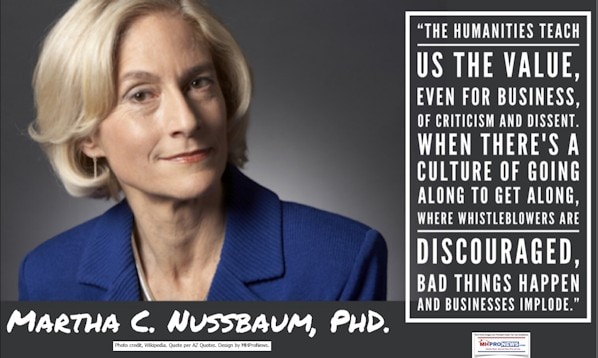
The case of Tim Williams at the Ohio Manufactured Homes Association has been examined several times. The outline and linked information should make it clear that MHI is not doing their job properly. Lesli Gooch has had a MHI whistleblower leak documents to MHProNews that provides evidence of conflicts of interest. The manufactured home industry is sliding during an affordable housing crisis. Meanwhile, far more costly conventional housing is rising?! Despite clear evidence, Williams/OMHA made the arguably absurd claim that Gooch was the best MHI leader he’s seen.
More recently, with that same background, Lance Latham with the Alabama Manufactured Housing Association’s recent emailed comment to MHProNews that will be examined.
An emailed request to Jim Ayotte, with the Florida Manufactured Housing Association (FMHA) and Tom Derzypolski with BowStern included several industry members in the BCC line. That was clearly indicated in the email to Ayotte and Derzypolski.
For whatever reason, Lance Latham with the Alabama Manufactured Housing Association decided to chime in with what is arguably at best a snide and unmerited set of comments that included Ayotte and Tom Derzypolski. Since he chimed in, Latham was asked to address the same issues that Ayotte and BowStern was asked to address. Despite repeated requests, Latham declined to address those concerns. When MHProNews pressed for a response, the last message from Latham said in part as follows.
“I didn’t duck anything, Tony. I simply have neither the time nor the interest to concern myself with the fights that you are trying to create just to make money.” – Lance Latham. Now, that is not only demonstrably untrue (see the above, which explains that pursing this investigation regarding Berkshire brands and MHI has cost our parent company clients and thus money), but it is arguably slander and/or libelous. There were no qualifiers by Latham in his statements. He didn’t just ‘allege’ something that is wrong. He made claim without evidence and stated that claim as if it was a proven fact. It is not. That’s a tangential, but not unrelated, legal issue for another time.
That noted:
- Latham’s statement does indeed circle back to the question of ducking out, does it not?
- After all, what precisely are many of these state and national executives doing for the benefit of their independent dues paying members?
- Why are Latham or others watching the numbers of independent producers, retailers, and communities – among others – dwindle away?
Once more for fairness and emphasis. There are certain MHEC execs that have periodically provided useful insights. They may be in a category of nonprofit leadership that is trying to do something while still keeping their jobs.
That noted, here is the message to Tom Derzypolski and Jim Ayotte that they did not reply to, but that Latham did. The email sent follows the screen capture.
The screen capture below includes orange call outs and
arrows not in the original email.
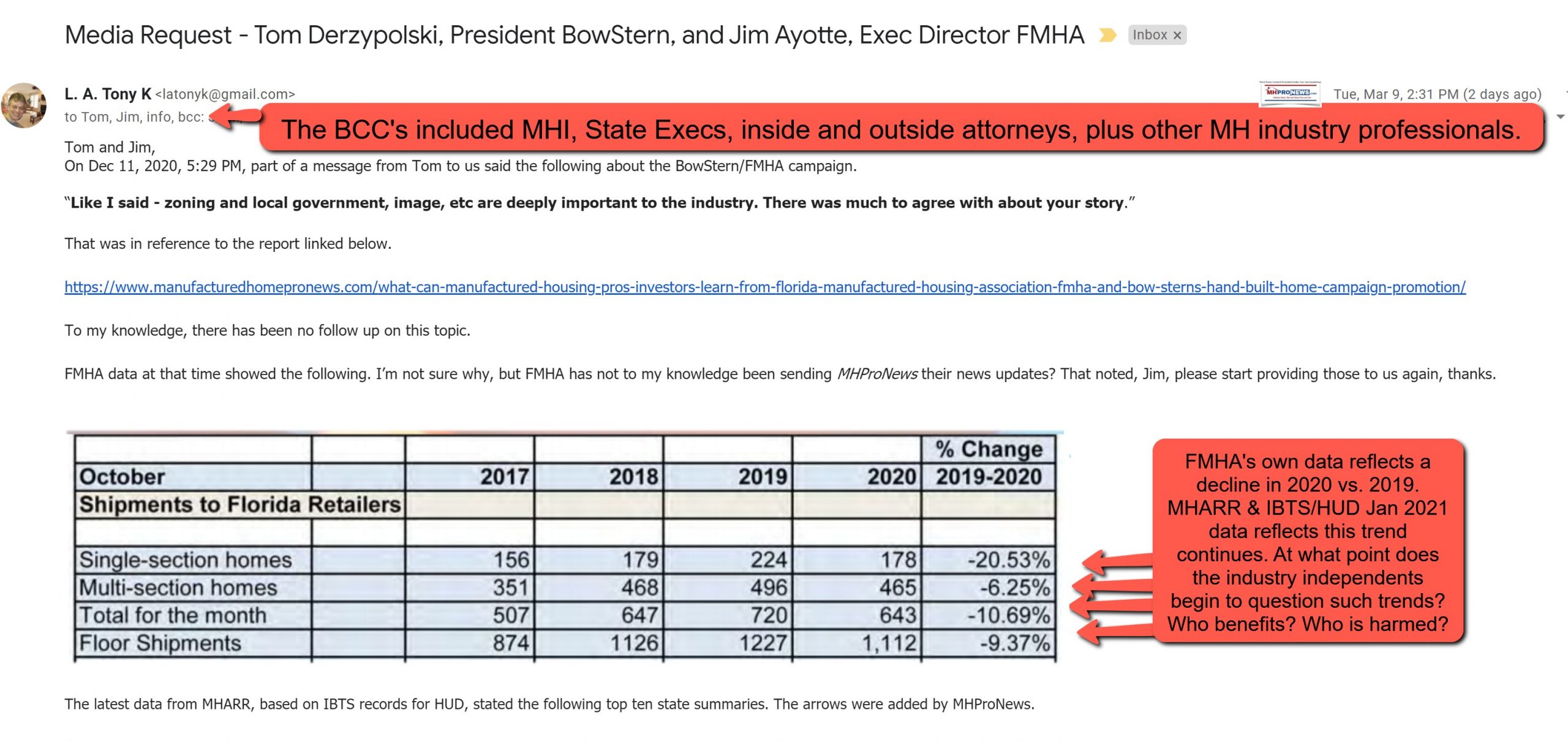
Subject: Media Request – Tom Derzypolski, President BowStern, and Jim Ayotte, Exec Director FMHA
Tom and Jim,
On Dec 11, 2020, 5:29 PM, part of a message from Tom to us said the following about the BowStern/FMHA campaign.
“Like I said – zoning and local government, image, etc are deeply important to the industry. There was much to agree with about your story.”
That was in reference to the report linked below.
To my knowledge, there has been no follow up on this topic.
FMHA data at that time showed the following. I’m not sure why, but FMHA has not to my knowledge been sending MHProNews their news updates? That noted, Jim, please start providing those to us again, thanks.
The latest data from MHARR, based on IBTS records for HUD, stated the following top ten state summaries. The arrows were added by MHProNews.
That noted, we generally concur with that quote from you, Tom, that image, zoning and local government placement issues are important for our industry. That noted, Zillow research reflected that interest in manufactured housing has been declining.
That noted, as an MHI member brand exec recently noted to MHProNews, the solution to the issue of zoning and placement were enacted into law in 2000.
The Manufactured Housing Improvement Act of 2000 (MHIA) made “enhanced preemption” to be ‘broadly and liberally construed’ precisely to overcome such challenges. MHI admitted as much in writing in a letter to then HUD Secretary Ben Carson. MHProNews reported that – at least officially – MHI agrees that HUD is not exercising its “enhanced preemption” authority.
With Gooch’s letter in mind, the following test was done this afternoon at the time noted for “enhanced preemption” on the MHI website. No result.
A similar test was done to see if FMHA’s website has any results under a search for “enhanced preemption.” No result.
By comparison, Google reports the following on the MHARR website reports for the same search. MHARR’s website reported 260 results, per Google.
This same pattern of Google search was performed for the MHProNews website for “enhanced preemption.” We think that the 520 result reported is way low, but nevertheless the contrast between MHI, FMHA, MHARR, and MHProNews on this same search is striking, don’t you think?
Last but not least, let me draw your attention to Mary Gaiski, Jim’s MHEC colleague, who made the following statement to McCall’s last year.
There are several points that could be logically deduced from quotes and data shown above. In no particular order of importance.
- Why is it being tolerated by the FMHA, member companies, or others that MHI has not vigorously pushed for the full and proper implementation of the MHIA 2000?
- While your FMHA website looks nice, clearly the data reflects that the trend down in shipments in Florida and much of the U.S. has not improved in the Sunshine State. That noted, how much practical benefit can be attributed to a ‘good looking’ website in practice if an existing law – the 2000 Reform law would – if enforced – could dramatically improve or even cure the issue your quote cited above about zoning suggests is needed to be addressed?
- Ms. Gooch, before and since that message to Dr. Carson, was reportedly in the presence of then HUD Secretary Carson several times. She was at the White House, in or other meetings with HUD or Congressional officials too. Is there any evidence that MHI showed either of you that they pressed “enhanced preemption” in person at any of these events? Is that letter from Gooch, perhaps like the MHI/NCC Rules of Ethical Conduct, merely window dressing?
As the co-founder of the largest and by far the most read trade publication in our industry – MHProNews.com – and as an industry pro who has worked in the trenches of the industry for some 30 years with numerous glowing comments, despite the obvious detractors, the following seems to me to be apparent.
So long as there is more posturing than action on zoning, placement, finance, and image, arguably the current trend is profitable to the few but costly to many. Until the causes of the image issues are addressed, which is often the purported bad behavior of certain MHI members, how is there is going any real progress to achieving the industry’s potential?
That potential is best achieved by enforcement of good laws that already exist and by properly caring for customers where they in turn send their friends, don’t you agree?
Your response point-by-point to the above OR a general reply to the thesis and question would be valued. Please indicated if your emailed reply is on or off the record. Note: that several MHPros, nonprofits, are in the BCC line, including FMHA members, attorneys, and others to document the request.
Let me conclude by asking that you both reply and that there be no deflection or other dodges from the substantive issues raised. No offense intended by that request, rather, it is that so many in our profession seem to be ducking the obvious solutions.
The above might be summed up like this. When conventional housing is moving up, affordable housing is in crisis, and the manufactured home industry has such good laws that could advance it if they were being properly applied, why are those good laws not being properly enforced?
Who does that pattern harm, and who does that trend benefit?
Thank you both.
Respectfully,
Tony
L. A. “Tony” Kovach
Managing Member
LifeStyle Factory Homes, LLC
PS: Tom, you might find some of the reports below relevant.
———- Forwarded message ———

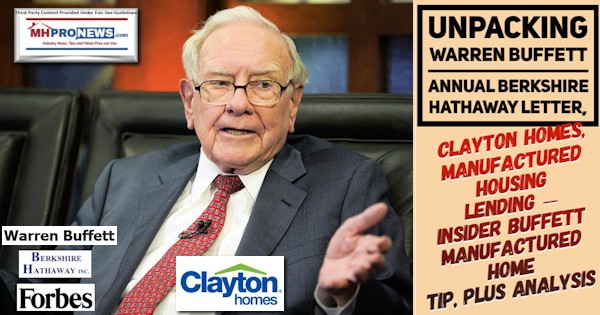
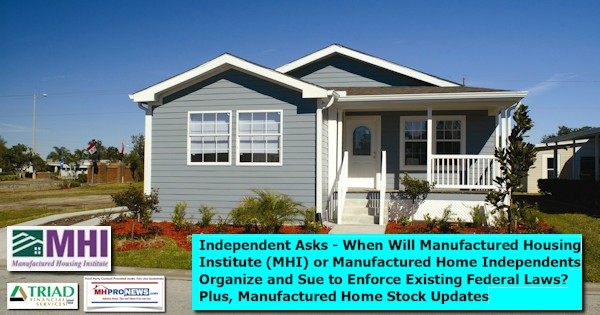
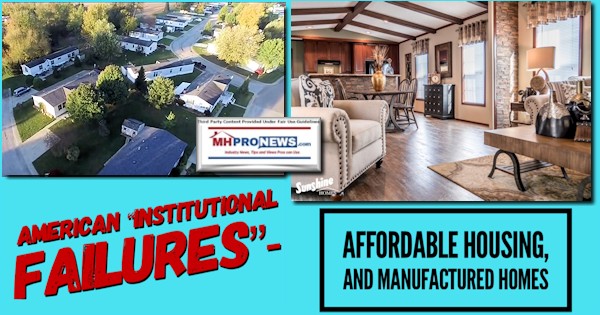

###
Additional Information, Summary, Additional MHProNews Analysis-Commentary and Conclusions
There are both so-called smoking gun pieces of evidence (eg: the 21st letter signed by Tim Williams) as well as more ‘bread crumb’ level evidence and trends that point to evidence of collusion by Berkshire brands, MHI, and a relatively small number of association insiders.
In the wake of a growing affordable housing crisis, the overall rate of homeownership in America is down.
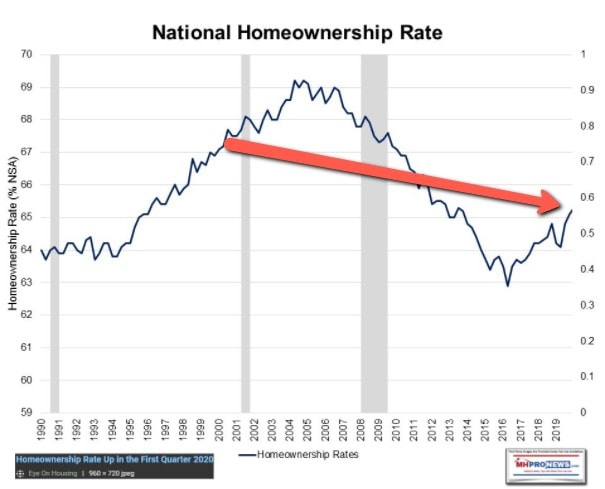
For whatever reasons, prior HUD Secretary Ben Carson said a number of very useful and evidence-based statements about manufactured homes. That noted, for whatever reasons, then-Secretary Carson also failed to fully and properly implement the MHIA or 2000 Reform Law.
In fairness to Dr. Carson, he may well have been kept in the dark by various brands that dominate MHI, MHI leaders themselves, and others involved in the Iron Triangle. That should be determined by a careful investigation.
Oddly, while Dr. Carson made that useful statement above and others to an MHI audience, repeated searches reflect the point that they are not found on MHI’s own website.
What was found for a time was a video where Carson praised MHI.
That is arguably an example of MHI’s smoke and mirrors, razzle dazzle, photo ops and videos strategy with their own independent members.
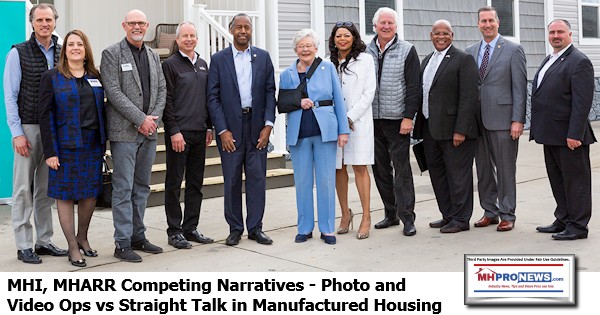

It is stating the obvious to note that Clayton’s connection to Warren Buffett, one of the richest and most influential men on the planet, could have produced a different outcome for the industry than the one the industry has witnessed.
To grasp the why and how, the castle and moat must be clearly understood.
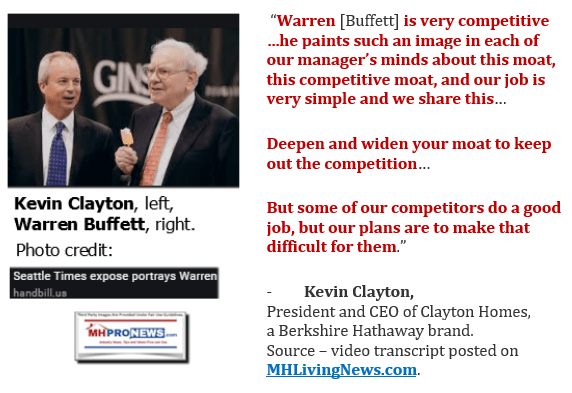
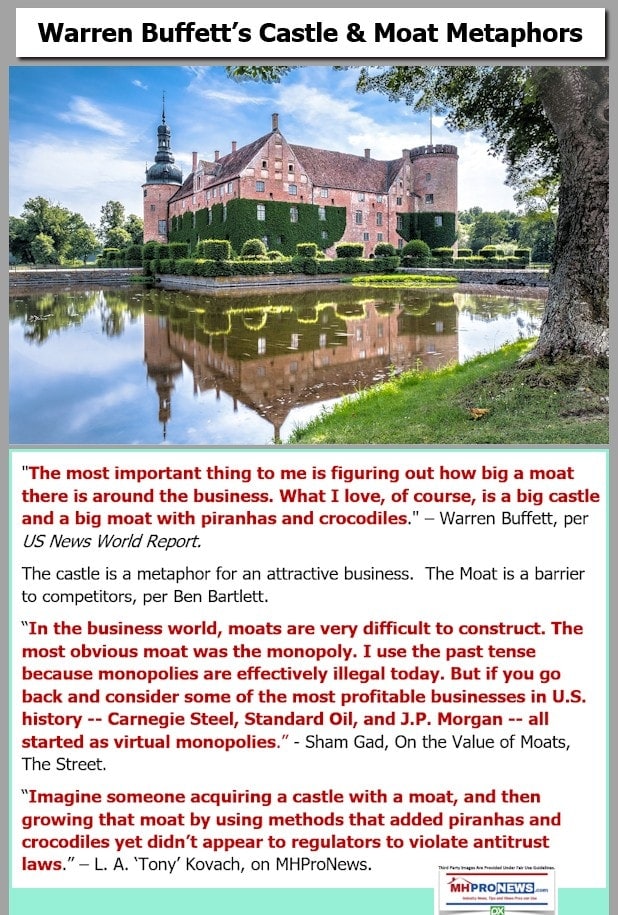
There are numerous outsiders looking in who have raised concerns similar to those advanced by MHProNews and our MHLivingNews sister site. The reports linked further above are just some of those, but one more pull quote illustrates.
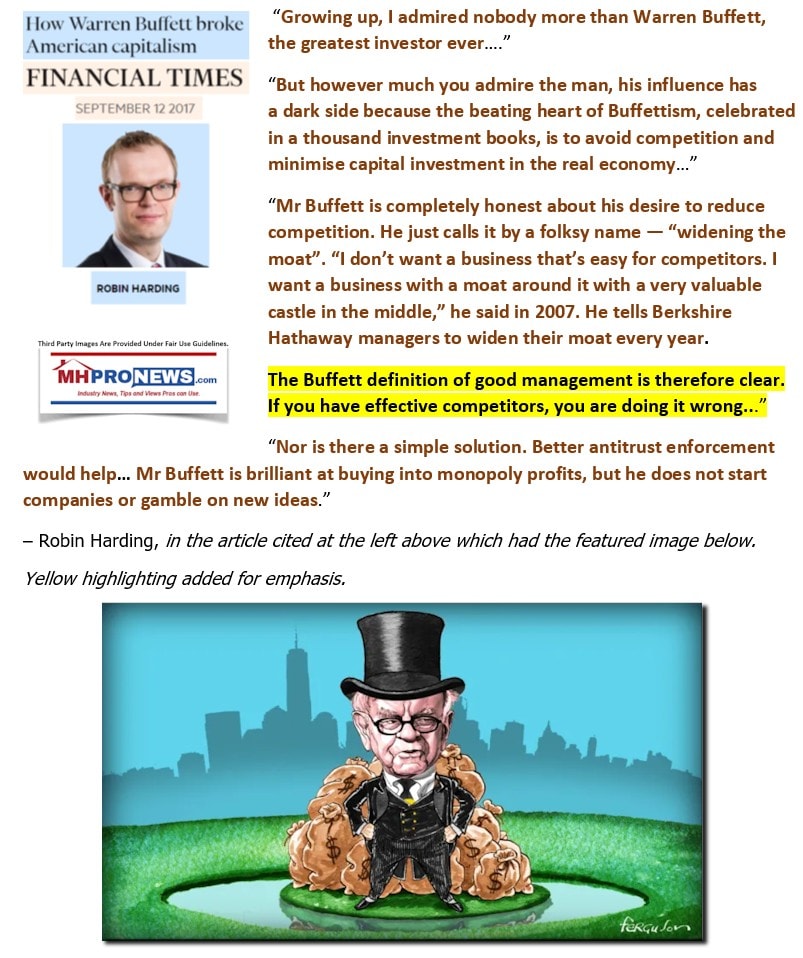
This report provides a good overview of the numerous nuanced to arguably blatant evidence of violations of one or more state and federal laws.
That in turn has logically harmed:
- Thousands of manufactured home independents. Many lost their businesses entirely, and/or sold out for a discounted valuation.
- Those acquisitions at discounted valuations are a hallmark of anti-competitive Buffettism. See the quote.
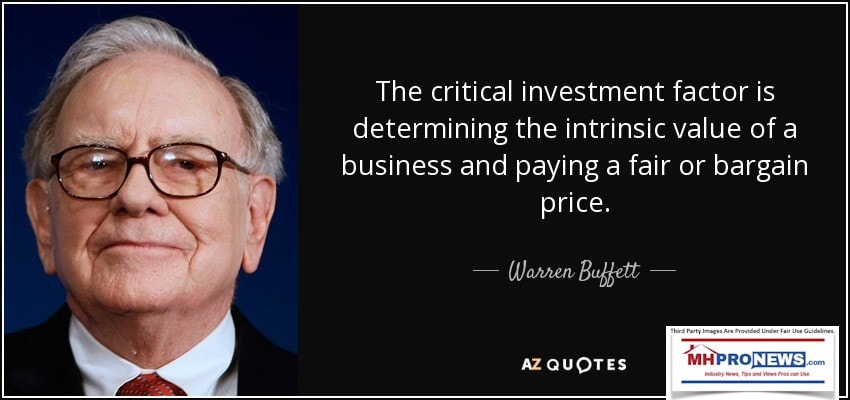
- While Berkshire brands benefited directly, their allies also benefited.
- Part of how this hobbling of the industry was carried out was through a web of nonprofits and other relationships that in many cases can be traced to so-called dark money donations by Warren Buffett to this or that nonprofit. That merits a separate report, one of which is linked here. Note that Buffett-bucks and nonprofit influence can be documented to
Some of many possible legal matters.
- Making knowingly false or misleading statements by corporate officials could lead to Securities and Exchange Commission (SEC) related issues.
- Using the U.S. Mail or ‘wires’ – i.e.: the internet, phones, fax – in deceptive ways raises postal and possible RICO issues.
- Antitrust laws can be invoked by state as well as federal agencies.
Antitrust and RICO each have possible civil and criminal elements.
Per Turnpike Law – with other sources saying similar things – the following.
“The federal civil RICO state (18 U.S. Code § 1964) explains the concept of treble damages well: A plaintiff who brings a successful civil RICO action “shall recover threefold the damages he sustains and the cost of the suit, including a reasonable attorney’s fee.”” Given that Berkshire is flush with cash, the significant damages suffered by manufactured housing industry professionals and consumers could in theory to a significant degree be recoverable.
In a case of a willful (deliberate) antitrust case, “treble [triple] damages are such a bedrock of the U.S. antitrust landscape…” says WilmerHale law. One must keep in mind that there are at least two levels of damages. One, is to consumers. Two, are two producers and/or sellers. But there may be other possibilities in this instance.
After all, aren’t taxpayers – and governmental entities – also being harmed by a purported manipulation of the U.S. affordable housing market? How many billions annually are spent by federal, state, and local governments that may not have been necessary in the absence of this market manipulation?
But when someone looks in more detail at the market manipulation in manufactured housing, existing manufactured home owners could be one subset of those harmed. After all, even the Buffett-connected Urban Institute admits that a lack of consumer financing is undermining manufactured home resale values.
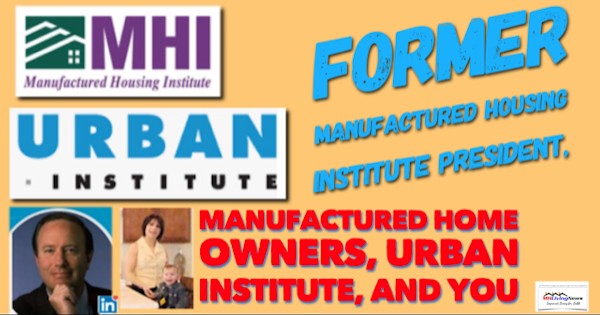
Buffett himself, per Kevin Clayton, seems to understand quite well the harm to resales.
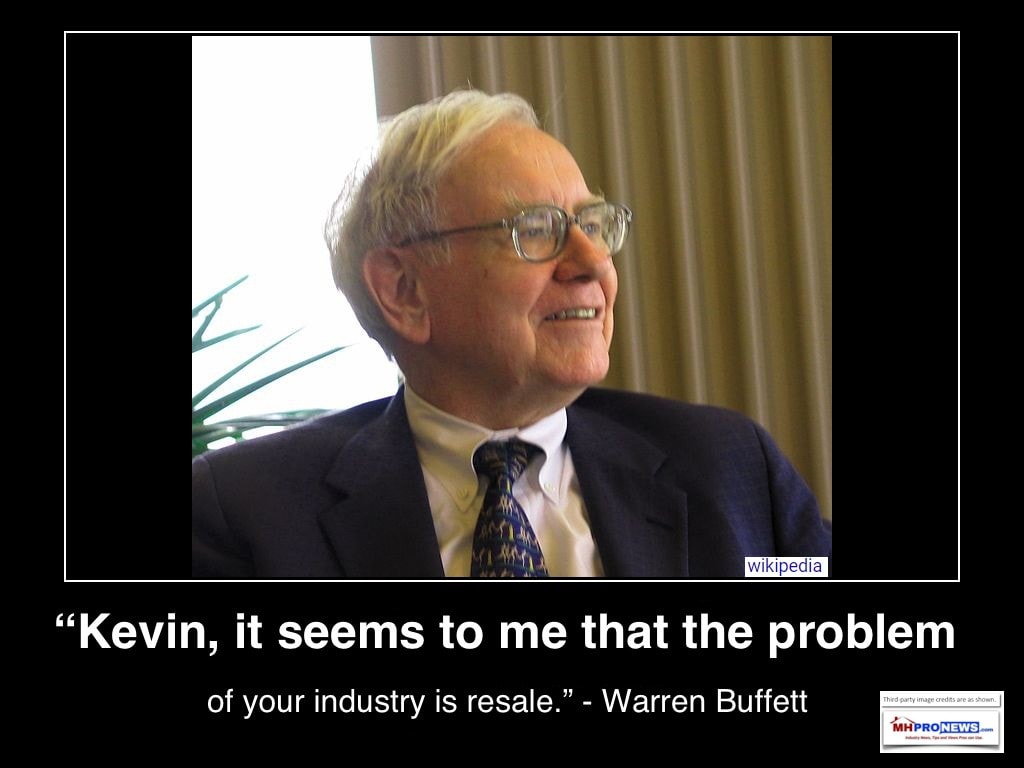
But press the scenario further. How many renters may have been ‘robbed,’ so to speak, of their ability to earn equity vs. rent receipts? This is one of several reasons why the statements of HUD Secretary Ben Carson – cited here and earlier above – are relevant. After all, there are reasons to believe that at least some of that data the former HUD Secretary used in his address was supplied to Dr. Carson by MHI.
Depositions and records could unpack that as necessary. How much communications occurred with Clayton, 21st, VMF, and/or other Buffett-Berkshire connected entities should be traced in such a possible litigation.
If this seems unlikely, given Berkshire’s clout, one must keep in mind the cigarette industry litigation examples.
- “In 1998, an historic landmark legal settlement between 46 states and the major tobacco companies, – along with individual settlements with four other states – required the companies to pay more than $246 billion over time as compensation for tobacco-related health care costs. That money is still coming in.” So said ISHN (International Society for the History of the Neurosciences) on December 24, 2019.
- “In 1999, the United States Department of Justice (DOJ) sued several major tobacco companies for fraudulent and unlawful conduct…” says the Public Health Law Center.
- The Nolo legal site says: “The first big win for plaintiffs in a tobacco lawsuit occurred in February 2000, when a California jury ordered Philip Morris to pay $51.5 million to a California smoker with inoperable lung cancer. Around this time, more than 40 states sued the tobacco companies under state consumer protection and antitrust laws.”
- CNBC reported in 2015 that: “Three major U.S. tobacco companies including R.J. Reynolds Tobacco, Lorillard, and Altria’s Philip Morris USA will pay $100 million to settle hundreds of federal lawsuits over smoking, according to an announcement from plaintiffs’ lawyers on Wednesday. The agreement will cover more than 400 lawsuits filed in federal court in Florida by smokers or their families, according to the announcement.”
Stated differently, there have been individual, class action, and governmental actions against tobacco companies. Those companies were once thought to be invincible in court and politically.
It should also be noted that Clayton Homes has already been involved, and settled, a class action lawsuit over an arguably far less important issue – wheels and axles.
Our MHLivingNews report on the “Case Against Clayton Homes…” is by far the most accessed report on that website. The site data generated by third-party Webalizer suggests that there are thousands monthly that are looking for information regarding a possible lawsuit against Clayton. That is presuming that only a fraction of those reading that report are thinking about suing: because the hits have been steady for months in the 200,000 (+/-) per month range on that one report.
To be clear, the research done to date by this publication and our sister site, which is a combination of organizing other research plus our own expert studies of these issues, sets a possible foundation for such a case. The arguments laid out by Strommen at Knudson law further bolsters the predicates for such an action.
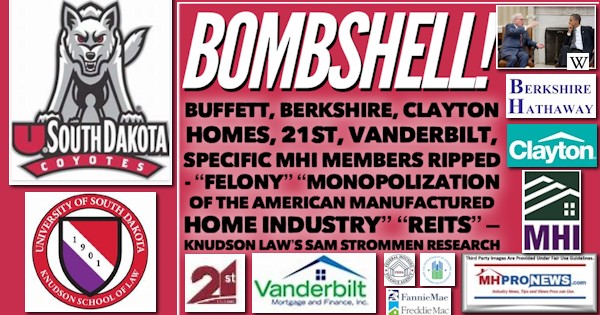
Statements made and a referral by attorneys – including those working for state attorneys general in their respective antitrust divisions – are more reasons why a properly organized antitrust, RICO, etc. effort could prove fruitful. These big cases take time, as the tobacco industry case reflects. But what that means is that the plans to tap into such cases should be started sooner than later.
Indeed, there is an argument to be made that if such a legal case is launched, perhaps some of the purportedly problematic and illegal behavior that has occurred as is outlined in the above may begin to abate. After all, if someone is facing serious legal challenges, that may be a deterrent for its continuation.
Rephrased, there are several reasons why this topic is just one of many things that organizing by:
- Past and present manufactured home industry professionals/businesses;
- past and present manufactured homeowners;
- perhaps even governmental, renters, and other groups may be able to tap into an action that would end what Doug Ryan at CFED turned Prosperity Now called the “monopoly” over manufactured housing.
Perhaps, as part of such an effort, independents – past and present – should organize and explore legal action against MHI, their major backers, and several state associations too?!
Last but not least for today. This purported pattern of collusion between nonprofits, Berkshire-owned brands, and some larger “big boys” at MHI provide ample reasons for manufactured home independents to break away from state and/or national trade groups connected to MHI. Who has made such an argument?
Several have, as noted above, but they include the following.
- MHARR which for a decade or more argued for the establishment of a post-production trade group that they could partner with to fully implement the existing federal laws that would – to borrow Dick Jennison’s phrase “unshackle” manufactured housing. Because Jennison had a point. The potential for the industry is arguably at least 500,000 units annually, perhaps far more, based upon Eric Belsky’s Harvard JCHS applied logic.
- NAMHCO, which started such a new post-production sector endeavor, but arguably made a tactical error by trusting a former MHI VP.
- Bob Crawford and Dick Moore, who laid out a prototype for such a post-production trade group that MHProNews previously reported on.
In the scientific method, the hypothesis is tested and refined. After years of testing and refinement, there may be no one in who has more closely examined the allegations and evidence against Buffett led Berkshire brands and their nonprofits that impinge upon manufactured housing than MHProNews and our MHLivingNews sister site.
In the only serious public debate by an MHI member of this hypothesis, the result was a clear win for our positions. But perhaps more important, several attorneys have examined the evidence and found it compelling. Not to be overlooked, the fact that MHProNews is arguably the runaway most-read trade media in our profession speaks volumes as to the level of buy-in by friends and foes of this thesis alike.
Summing up and drawing to a conclusion.
- The manufactured home industry’s remaining independents in many cases know those who sold out ‘cheap,’ or were put out of business entirely. Once the ball got rolling, the numbers of those who could be involved in such a litigation would potentially grow rapidly.
- Because there is a possibility of such a case being handled on contingency, a key on the front end is to organize.
- A successful class action law firm that MHProNews has already spoken with said that they see the potential but would prefer that there would be not only professionals but also consumers involved in the case. That makes sense, because consumers will likely be on the jury, if such a case goes to trial.
- Organizing would be useful in pressing state and federal officials into taking parallel actions. Again, see the example of the cigarette industry lawsuits, noted above.
- An additional benefit is that the creation of a post-production manufactured home professional trade group would be able to mitigate and also reflect over time how damaging the actions of the purported co-conspirators has been.
- While further study is merited regarding some consumer groups, there are good reasons to doubt the authenticity of MHAction as a legitimate consumer trade group. It was a manufactured homeowner association out of California that brought to MHLivingNews’ attention their concerns about the legitimacy of MHAction.
- By working with MHARR and consumers, a post-production trade group could help mitigate some of the damages that have arguably caused to hundreds of thousands if not millions of mobile and manufactured homeowners in the years since Berkshire began to wield is unholy influence in our once far healthier industry.
To paraphrase a line and from the 45th President, Donald J. Trump:
- what do manufactured home industry independents have to lose by organizing? Other Republicans have shown interest in antitrust, why not with respect to our industry, once they see the evidence and engage with such a group as proposed?
To borrow some talking points from Democrats:
- their party claims in their platform and by individual candidates they are for a more robust enforcement of antitrust laws. If so, then a fresh organization could rapidly determine how serious that claim by Congressional Democrats and their party in general may be.
- At a minimum, such a group could work with MHARR to begin implementing laws passed over 12 and 20 years ago. Those laws could begin to restore to health the serious harm that has apparently occurred since the Berkshire entry into the industry.
- In terms of education and marketing, as well as in terms of other ways that legal matters could be addressed, the benefits far outweigh the harm.
- Staring such a post-production trade group may well cause some more insiders to come forth for a variety of reasons noted directly or by implication above and from other articles and research linked from this report.
Ideally, some corporate or other industry leader – who can be discerned as not having any pro-Clayton et al ties – should be part of the launch of such an effort. The purported mistake made by NAMHCO should not be repeated by trusting someone with obvious ties to those who have undermined our industry from within.
As a closing note. Attorneys, advocates, lawmakers, and others often like getting involved in such a matter. Once they see the potential, championing such a cause could attract one or more third-parties with their own positive motivations to this case against the alleged corruption within our industry. To learn more, see the linked and related reports herein above, as well as below the bylines and notices.
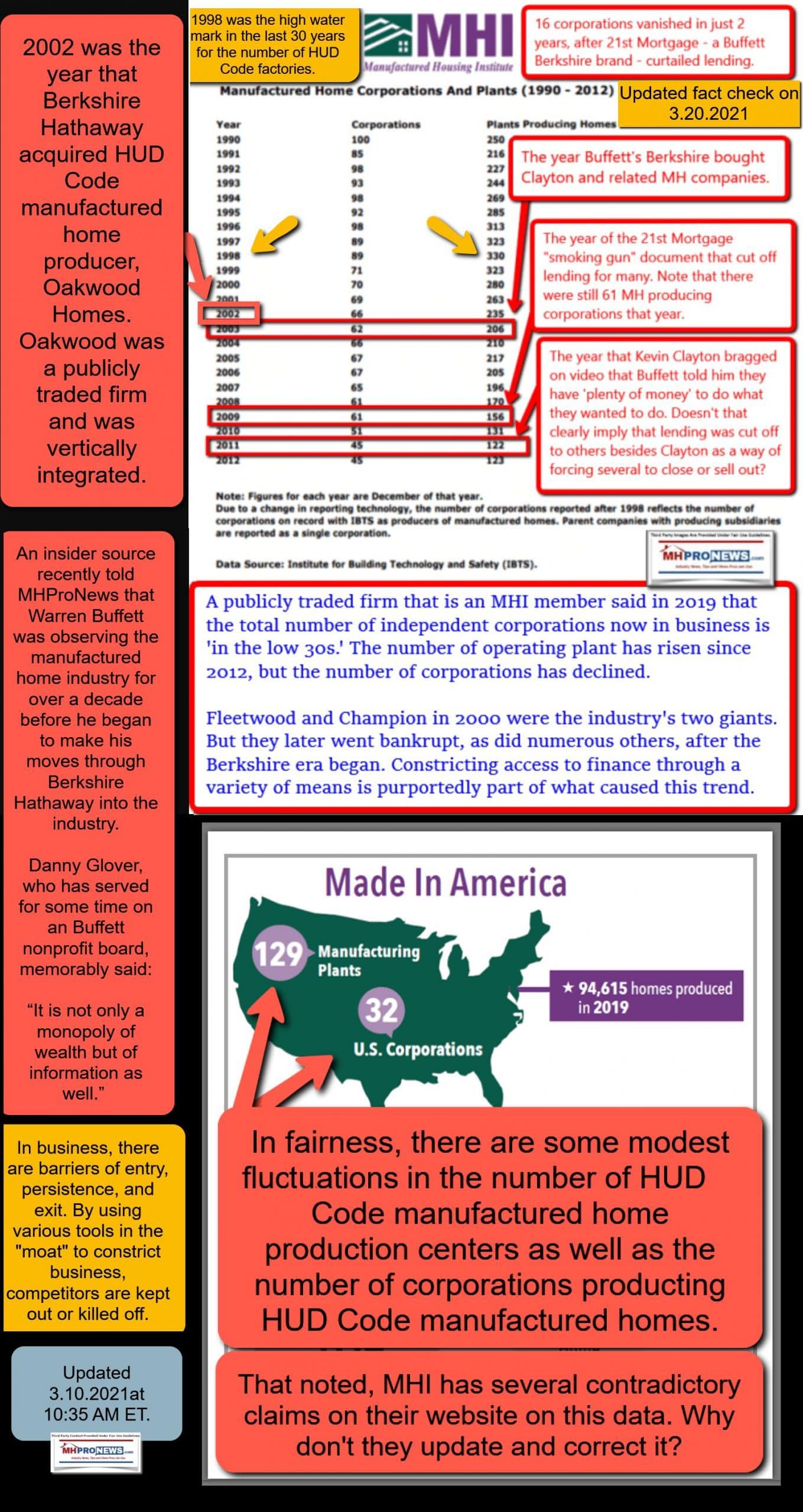
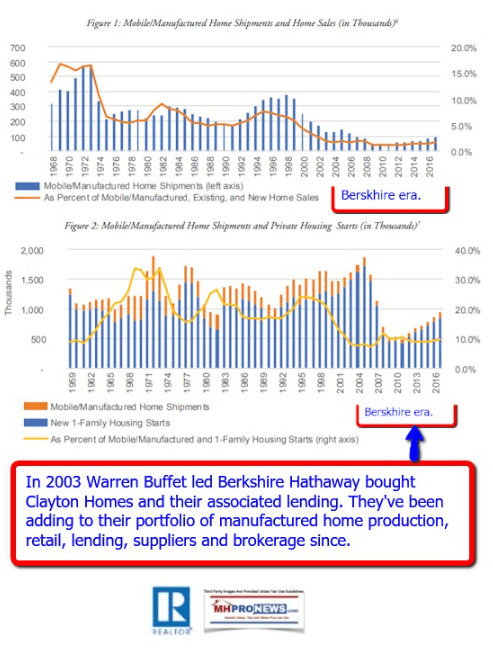
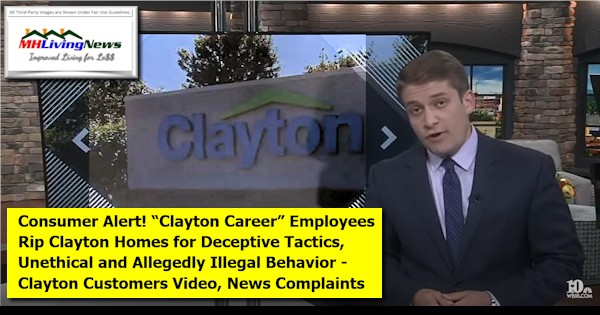


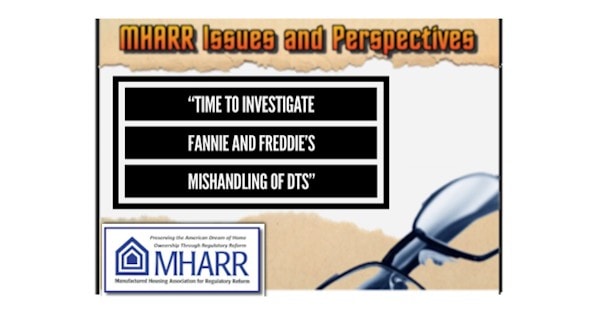
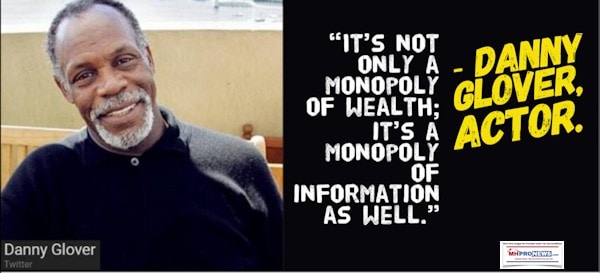
Stay tuned for more of what is ‘behind the curtains’ as well as what is obvious and in your face reports. It is all here, at the runaway largest and most-read source for authentic manufactured home “Industry News, Tips, and Views Pros Can Use” © where “We Provide, You Decide.” © ## (Affordable housing, manufactured homes, reports, fact-checks, analysis, and commentary. Third-party images or content are provided under fair use guidelines for media.) (See Related Reports, further below. Text/image boxes often are hot-linked to other reports that can be access by clicking on them.)

By L.A. “Tony” Kovach – for MHProNews.com.
Tony earned a journalism scholarship and earned numerous awards in history and in manufactured housing.
For example, he earned the prestigious Lottinville Award in history from the University of Oklahoma, where he studied history and business management. He’s a managing member and co-founder of LifeStyle Factory Homes, LLC, the parent company to MHProNews, and MHLivingNews.com.
This article reflects the LLC’s and/or the writer’s position, and may or may not reflect the views of sponsors or supporters.
Connect on LinkedIn: http://www.linkedin.com/in/latonykovach
Related References:
The text/image boxes below are linked to other reports, which can be accessed by clicking on them.
